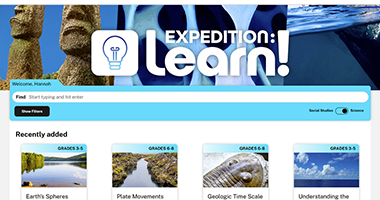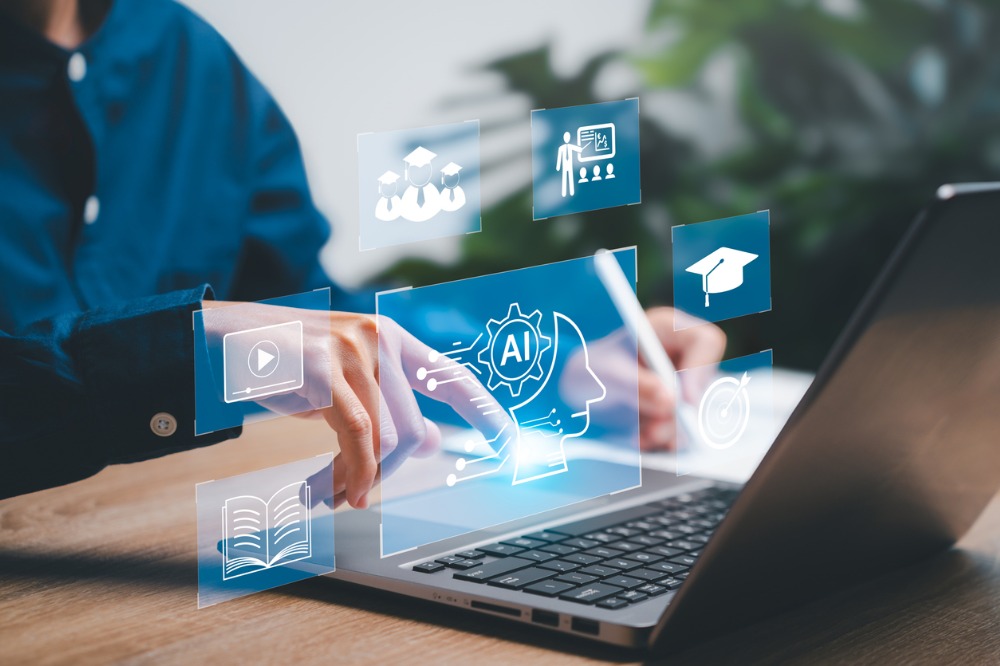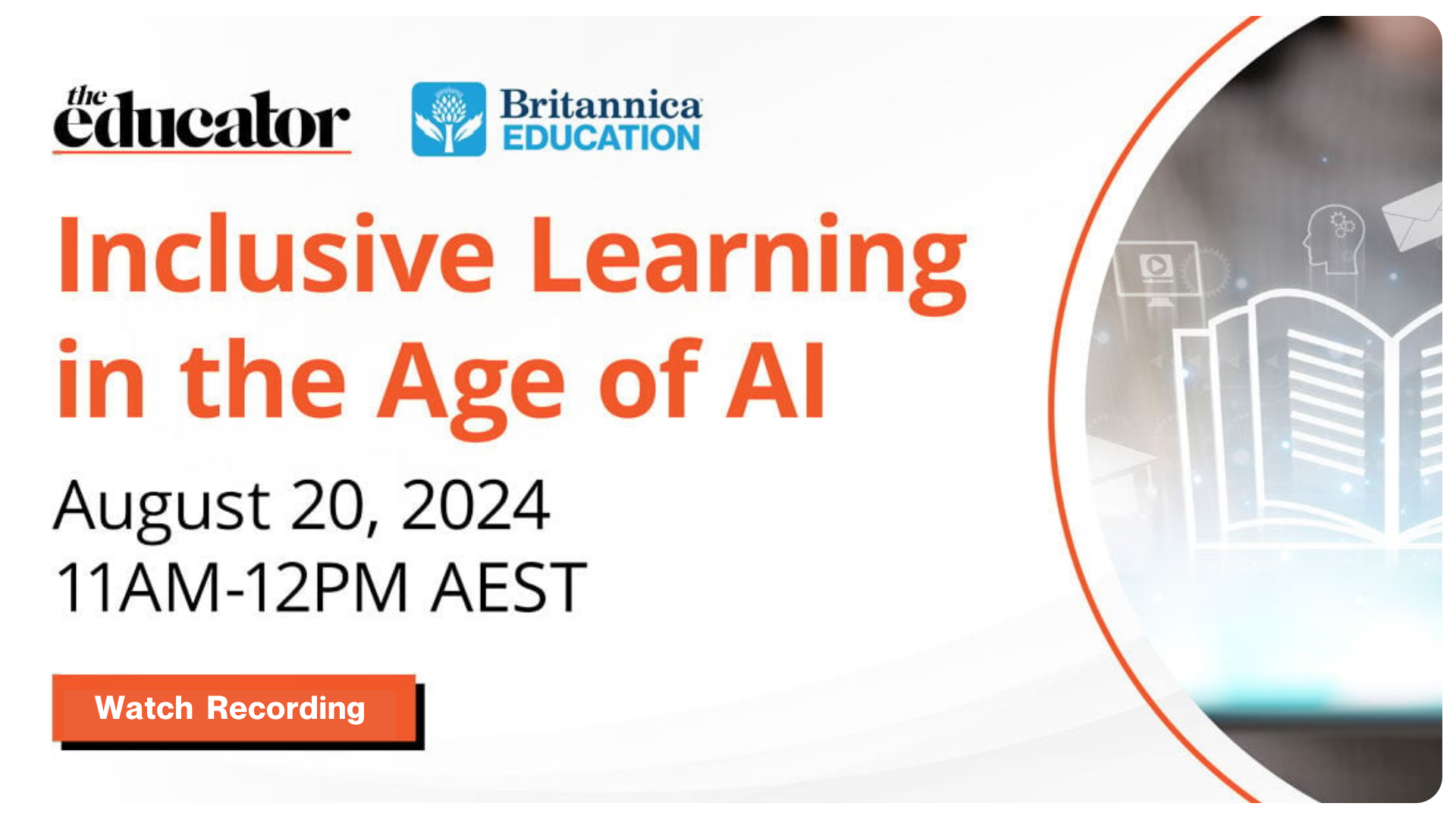As the Australian education sector continues to embrace the endless potential of new technology, the explosion of AI is presenting both exciting opportunities and unique challenges. Educators are grappling with a slew of new issues, from data security to algorithmic bias, equity and ethical AI use.
To move boldly into this new realm of learning, educators need to upskill both teachers and students in digital literacy. This involves creating a solid foundation in understanding AI technology, its ethical considerations, and practical applications in the classroom.
Zeina Chalich, senior manager education & professional learning APAC at Britannica Education shared her insights in a webinar designed to help educators, policymakers, and technology developers harness AI’s potential safely. She also discussed how educators can tailor learning to meet the diverse needs of students.
Ensuring Inclusive Learning with AI
One of the most significant promises of AI in education is its potential to foster inclusivity. Chalich emphasises that AI can be a powerful tool in creating learning environments where every student feels seen and supported.
“We’ve seen significant success in using generative AI to create inclusive learning materials,” she explains. “AI can generate diverse and culturally relevant content, helping to ensure that all students see themselves reflected in their education.”
The webinar delved into the ways AI can bridge gaps and support diverse learning needs. This includes adaptive learning technologies that tailor educational content to individual students, which has huge potential to enhance engagement and learning comprehension.
AI’s role in supporting teachers is another critical aspect of promoting inclusivity.
“By automating administrative tasks, providing real-time feedback on student performance, and suggesting personalised teaching strategies, AI allows educators to focus more on direct student interaction,” Chalich says.
Students with disabilities can also benefit hugely from AI-driven technology. Tools like screen readers, closed captioning, and AI-driven note-taking apps ensure all students can access learning materials. Chalich discussed these technologies and their impact on inclusivity in detail during the webinar.
Ethical Considerations of AI
Ensuring the ethical use of AI has been a key challenge for the education sector. There is no getting away from the fact that AI will soon be present in schools globally – so to ensure this happens safely, educators and students need to digitally upskill.
“To prepare for the challenges posed by generative AI, educational institutions must prioritise comprehensive digital literacy programs,” Chalich explains.
“This includes understanding AI technologies, ethical considerations, and practical applications in the classroom.”
The webinar emphasised the need for collaboration between policymakers, educators, and technology developers to create robust guidelines and frameworks for the ethical use of AI. Additionally, it highlighted the importance of professional development programs that equip teachers with the knowledge and skills to effectively integrate AI into their teaching practices.
Watch the Webinar On-Demand
Hosted by The Educator and Britannica Education, Inclusive Learning in the Age of AI is a must-watch webinar for anyone involved in the education sector who is committed to fostering an inclusive and equitable learning environment.
By addressing the core challenges and exploring innovative solutions, this webinar provides the tools and knowledge needed to navigate the AI revolution in education successfully.
This article first appeared in The Educator in August 2024.


